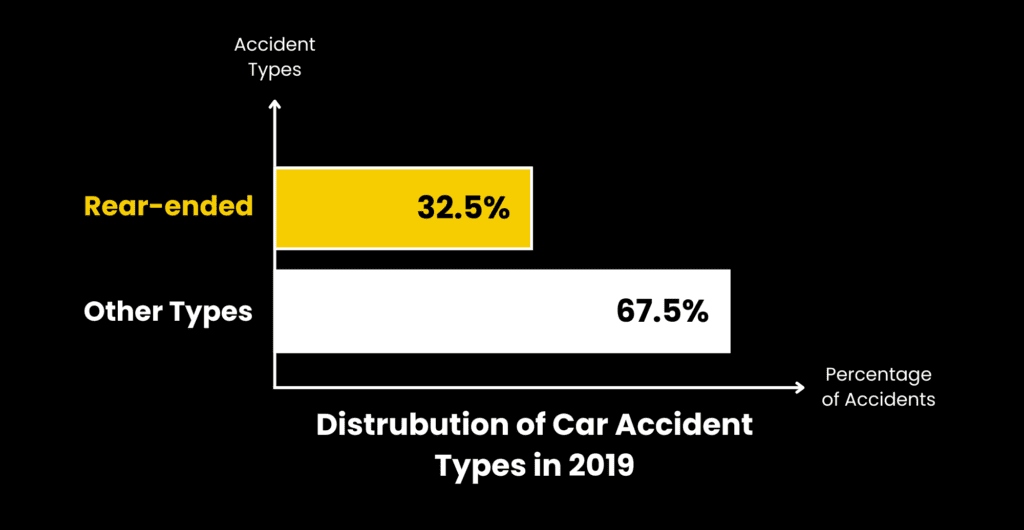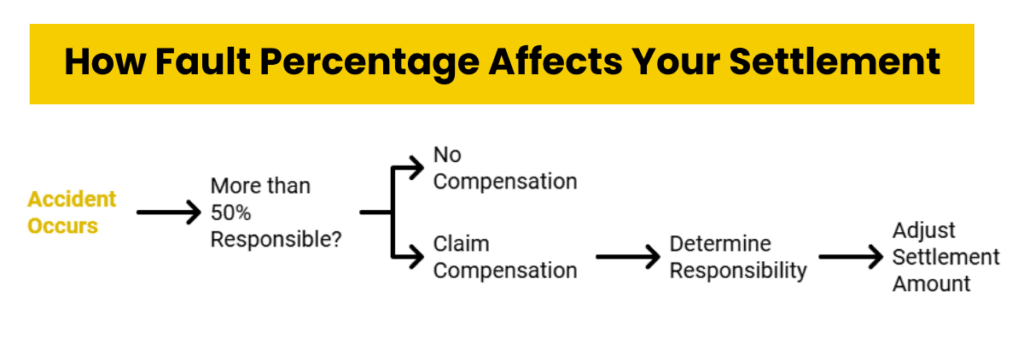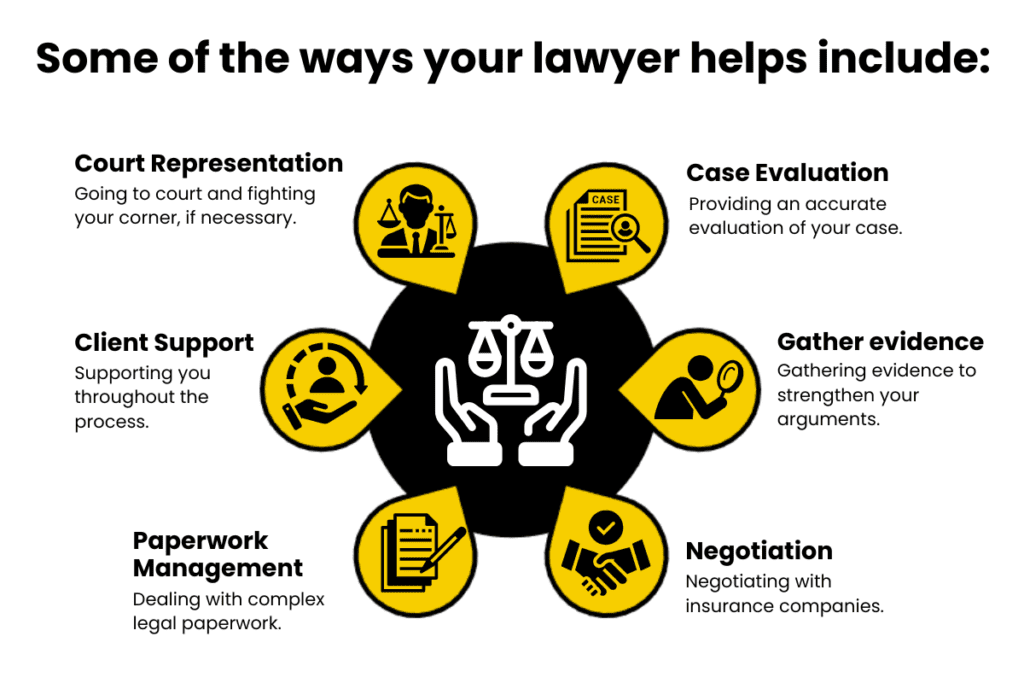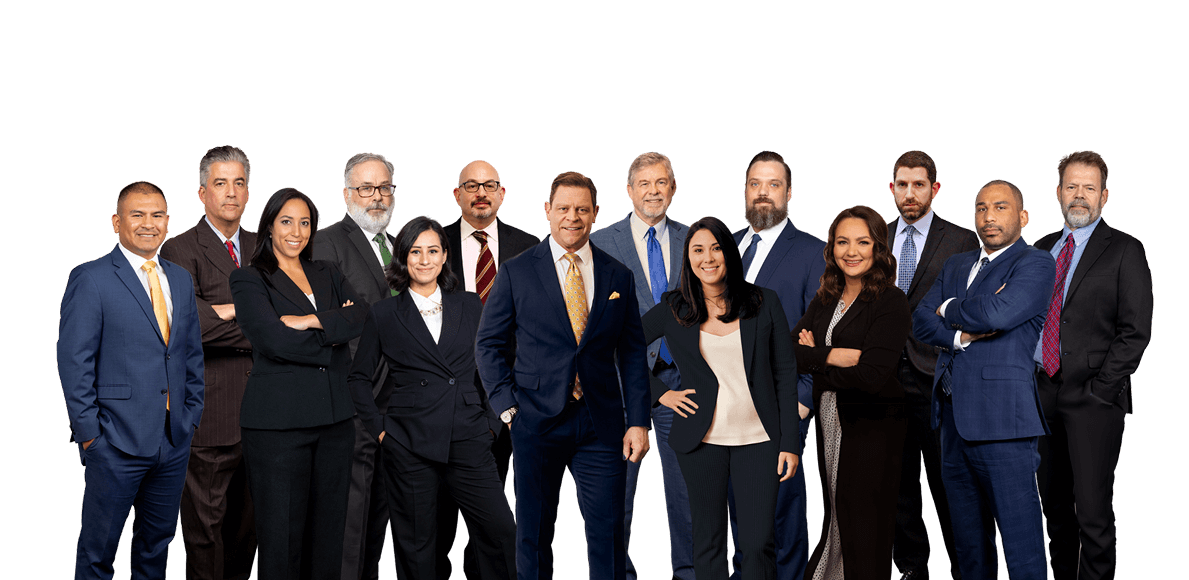Safety should be the priority for every driver, but reckless driving is a facet of the American driving experience. According to the National Law Review, brake checking is a form of reckless driving or road rage that contributes to rear-end accidents, which cause 29% of all serious injuries.
Hitting your brakes abruptly and for no real reason is known as brake checking or brake testing. It gives the motorist behind almost no time to react, thus resulting in unnecessary accidents or injuries.
If you’ve been involved in a brake-checking incident, consulting an Austin car accident lawyer can help you pursue compensation and hold the reckless driver accountable.
Today, we discuss questions like, “Is brake checking illegal?”, “What is it?”, and “Why do people do brake checks?” whether it’s legal, and why people partake in this dangerous driving behavior.
Key Takeaways
-
Brake checking occurs when a vehicle unexpectedly and suddenly hits its brakes, increasing the risk of the rear vehicle crashing.
-
Committing a brake test is illegal in every state and comes with various consequences, including citations, license suspensions, and even loss of insurance coverage if an accident occurs.
-
Brake checking occurs for various reasons, the most common being tailgating. While it’s nearly always a road rage incident, insurance fraudsters also use it to simulate crashes.
-
Liability for brake-checking crashes is complicated, but it’s usually given to the front driver because they initiated the brake check. However, comparative negligence may mean both drivers are assigned a portion of the blame.
-
If you were involved in a brake-checking accident, you must call the police, get yourself to safety, and contact an attorney to determine your next step for claiming the settlement you deserve.
What is Brake Checking?
Brake checking is where a car slams on its brakes suddenly while someone else is behind a vehicle. It’s often used against tailgaters and is an act of road rage. Slamming on your brakes without warning isn’t an illegal act itself, but there must be a valid reason why a motorist does this, such as to avoid a hazard in front.

Note that brake checking doesn’t have to involve hitting the brake pedal hard. Even touching your brake pedal at speed just enough to make the rear lights come on can be considered a type of brake check because it increases the risk of an accident. According to Forbes, 32.5% of accidents in 2019 resulted from being rear-ended, and a good number would have originated from brake testing.
Is Brake Checking Legal in the U.S.?
Brake checking isn’t legal in the U.S. because it’s unnecessary and creates a dangerous situation for others. If you’re caught doing it, you can be pulled over, given a citation, and have points added to your license.
Dashcam footage posted online regularly shows how scary and dangerous this practice is. Yet it’s surprisingly common. According to Octo Telematics, 78% of drivers admitted to committing at least one aggressive driving behavior in the past year, including brake checking.
The problem with determining whether someone has broken the law is that it’s usually committed in response to tailgating. Brake testing is most commonly employed to force people to stop this annoying behavior, even if it means risking an accident. Since both drivers are committing a legal act, what do you do?
That’s why determining fault in brake testing accidents is so complicated for personal injury lawyers, given the 1.7 million annual rear-end collisions reported by EZ Auto Spa.
Why Do People Brake Check?
Brake checking is often done as a response to aggressive driving behaviors, such as tailgating. Younger drivers may also brake-check their friends because they believe it’s funny without realizing the dangers. Insurance fraudsters have also used brake checking to simulate minor accidents and claim the insurance payouts.
Regardless of why it happens, brake checking dramatically increases the risk of an accident. Sometimes, this leads to life-altering and fatal results.
Is it Legal to Brake Check a Tailgater?
Tailgating is annoying, and many drivers decide to brake test people to get them to back off. Even though following too closely is illegal in every state, it’s not legal to brake check a tailgater, either. Both parties are technically in the wrong and can be cited.
If someone is injured in a brake testing accident, they have the right to file a personal injury lawsuit against the other person. Yes, they may be apportioned part of the blame, which will reduce their settlement, but they can often still claim a monetary settlement.
Is Brake Checking Legal in Road Rage Car Accidents?
Brake checking also occurs due to road rage, especially when drivers feel like they’re being followed or someone has previously yelled at them at a stoplight. The AAA reports that 80% of drivers admit to experiencing some form of road rage when behind the wheel. Regardless, it’s illegal to brake check as a response to road rage.

Dashcams have recorded countless videos of road rage incidents involving brake checking. In nearly all cases, the motorist in front is usually held responsible. The correct approach to road rage incidents is to back off and avoid responding to aggression with more aggression.
Is it Legal to Brake Check Your Friends?
Brake checking, even if it is an act of “fun,” is illegal, even if your friends know they are about to be brake-checked. According to Bankrate, teens make up 7% of all driver deaths annually, which is an outsourced portion for this age group.
Teenage drivers in many states can lose their licenses entirely for getting caught committing any road violation. Typically, violations by young and new drivers are treated far more harshly than those committed by those in other categories.
Who is Liable for a Brake Checking Accident?
Determining liability for a brake-checking incident is tough, but the brake-checking driver is usually held responsible because they were the one who caused the accident. The general view is that the accident would have never happened if they hadn’t hit the brakes unnecessarily.
However, cases are rarely as simple as this. For example, if a teenager commits an intentional brake check against their friend who’s tailgating them, both drivers are at fault because they both committed an offense.
The brake checker may be more responsible for the accident, but things get even murkier when you don’t consider these accidents in isolation. For example, if the rear driver acted aggressively before or during the accident, more blame may be shifted to them.
You can only guarantee that someone will be held 100% liable for a brake-checking crash if someone randomly slams on the brakes for no good reason against an unsuspecting motorist following at a safe distance. And this is almost never the scenario.
What is Contributory Negligence?
Contributory or comparative negligence is used in states with at-fault insurance laws to apportion blame for an accident in percentage terms. It acknowledges that both drivers had their parts to play in the accident.
Divided blame impacts your ability to claim a settlement. For example, states like Texas have laws that state that if you were considered more than 50% responsible for an accident, you lose your right to claim monetary compensation, regardless of your injuries.

Assuming you can claim monetary compensation, your settlement award will be reduced by how much you were to blame. For example, suppose you suffered severe injuries when you were brake-checked. However, it was proven you were acting aggressively and tailgating in the run-up to the accident. A court decides you were 30% responsible for the crash.
Since you’re 30% responsible for the brake-checking collision, your final settlement award will be reduced by 30%.
What to Do If You Are Being Brake Checked?
Being brake-checked can be scary, but stay calm and keep your distance. Avoid getting into a situation where your vehicle could collide with the person brake-checking you.
Stay alert throughout the situation and anticipate hazards. Never take away your attention from the road. Your goal is to get out of the situation. Try to avoid overtaking the other driver or antagonizing them.
Instead, take the opportunity to turn onto another road and opt for the long way around. Alternatively, pull over to the side of the road and let the other driver go. If the other driver also stops and becomes aggressive, never engage them, as you could get hurt. According to the Zebra, more than 12,000 injuries have been attributed to road rage in the last seven years, and shooting incidents are on the up.
Lock your doors and windows and call law enforcement. Tell them what’s happening and tell them to attend. Use your dashcam and phone to take photos and videos to support your personal injury claim later.
What to Do After a Brake Check Accident?
Brake-checking accidents differ from normal accidents because they often involve some form of road rage. Since the situation can escalate quickly, you must do your best to gather evidence while prioritizing your safety.
Here are the steps to follow after a brake check accident:
-
Step One – Inspect yourself and your passengers for injuries. If anyone requires immediate medical attention, call 911.
-
Step Two – Call the police and ask for an officer to attend. If you feel like you’re in immediate physical danger, make this clear during the call. In this case, you should simply wait in your vehicle with the doors and windows shut. Don’t get out to confront the driver.
-
Step Three – Wait for an officer to attend. They can get a handle on the situation and fill out an official accident report. Moreover, they can complete the necessary exchange of insurance details.
-
Step Four – Once the officer has calmed the situation down, you can use your phone to gather evidence. Take pictures of any visible injuries and damage to the vehicle. You may even be able to find some eyewitnesses who saw what happened.
-
Step Five – Seek medical attention at your nearest medical facility. Even if you feel fine, rear-end accidents often lead to injuries like whiplash and concussion, which may not appear until hours after your accident.
-
Step Six – Inform your insurance provider of the accident. Most auto insurance companies require you to report all accidents (no matter how minor) and do so within 24-72 hours. You should also contact an attorney to explain what happened.
Brake check accidents can be traumatizing because the circumstances usually mean a driver has entered a state of road rage. The important thing is to stay calm, let the police handle it, and then seek legal representation.
Why Tailgating and Brake Checking Cases are Hard to Prove
Brake checking and tailgating go hand in hand. However, proving that you were brake-checked or that the other driver was tailgating is notoriously tricky because of the lack of physical evidence.
According to Forbes, 41% of drivers admitted to an act of road rage, but how would you prove this from a legal perspective? Usually, the only way to prove brake checking is dashcam footage or hope that an eyewitness saw what happened and is willing to give a statement.
These cases often lack physical evidence and so devolve into a game of he said, she said. Without that evidence, the only thing solid is that one driver crashed into the back of another.
It’s one reason why it’s strongly recommended that you equip your vehicle with a dashcam. Dashcams are relatively affordable and provide vital evidence of whatever happens on the wide-open highways.
Deadline to File a Car Accident Claim
Your deadline to file a car accident claim depends on your state’s statute of limitations. Most states provide you with two to five years to file a car accident claim, the same as the general personal injury statute of limitations.
For example, Texas gives you two years from the date of your accident to file a claim. Accident victims should ideally file a claim as soon as possible to avoid letting the deadline creep up on them. If you miss the deadline, you lose your right to claim monetary compensation entirely.
Note that the statute of limitations is the deadline to file your claim, not your deadline to get a settlement.
Insurance Companies Can Deny Coverage for Brake Checking
Insurance companies have got wise to the problem of brake checking over the years. Many auto insurance companies now include the practice under their intentional conduct policies. Violate your intentional conduct policy, and your insurer has the right to invalidate your coverage.
For example, if you were being tailgated and brake-checked the person behind you, thus causing them to crash into you, you’d think your collision coverage would cover the damage to your vehicle.
Instead, your auto insurance firm proves that you brake-checked them. Thus, you performed a behavior that intentionally caused an accident. They can then invalidate your policy and pay you nothing, thus leaving you to pay not only your own repair costs but any damages to the other party.
Granted, proving brake checking is just as tricky for insurance adjusters as for anybody else. Nevertheless, the risks of being caught and losing your coverage are substantial, which is why smart drivers never perform this maneuver.
There’s No Police Report: Can I Sue?
Police officers may not attend an accident if it’s minor. The definition of minor depends on the state. For example, in Texas, if there are no injuries and the property damage is under $1,000, they may choose not to attend.
The absence of a police report doesn’t bar you from suing the other driver. It just means that you’re missing an important piece of evidence and the opinion of a respected authority figure. You’re well within your rights to sue and use any other evidence to push your case forward.
Before filing a lawsuit, contact a lawyer to assess your case and determine whether you have a viable chance of winning a settlement.
How Can a Car Accident Lawyer Help?
Lawyers are there to build your case and support you through every step of the process. Working with an attorney makes you statistically likelier to win your case and increase your final settlement.
Some of the ways your lawyer helps include:
-
Providing an accurate evaluation of your case.
-
Gathering evidence to strengthen your arguments.
-
Negotiating with insurance companies.
-
Dealing with complex legal paperwork.
-
Supporting you throughout the process.
-
Going to court and fighting your corner, if necessary.

There’s no risk to using a personal injury attorney to file your lawsuit, either. Most lawyers work on a contingency basis, meaning they don’t get paid if you don’t win. To learn more about how a car accident attorney helps, contact a lawyer for a free consultation today.
Brake Checking FAQs
Can you go to jail for brake checking?
Some states categorize brake checking as a form of reckless driving. Getting found guilty of reckless driving can result in criminal charges being lodged against you, including jail time. Moreover, even if you avoid jail, you can suffer from extreme civil liability.
Should you report brake checking to the police?
Reporting all dangerous driving to the police is a good habit to get into. Still, the reality is police are unlikely to do anything unless you have evidence of the incident happening or an accident was caused.
What happens if I’m brake-checked and the other driver drives away?
All accidents require drivers to stop and exchange insurance details. Brake-checking someone and driving away is a hit-and-run offense. In many states, this can result in criminal charges and mandatory jail time.



